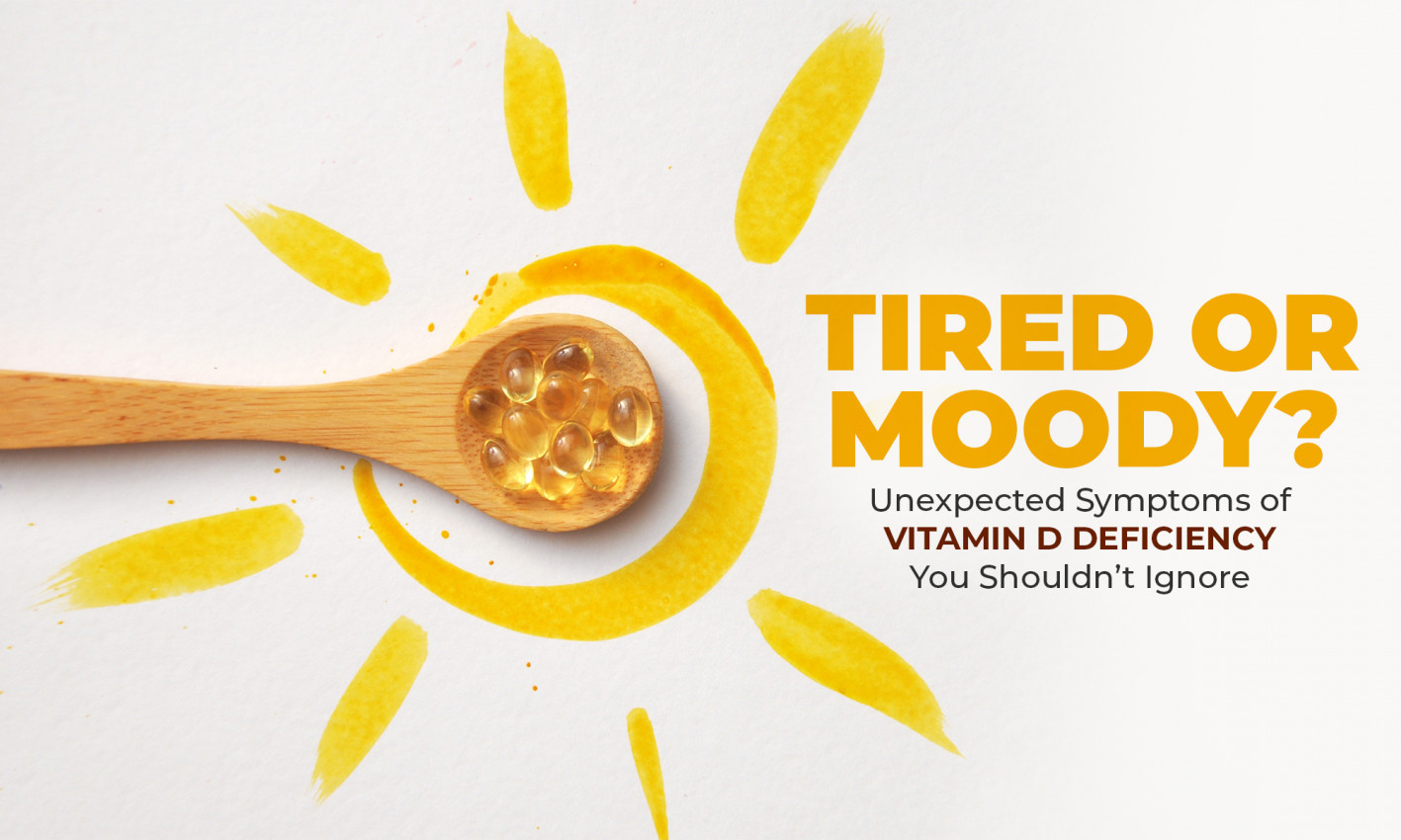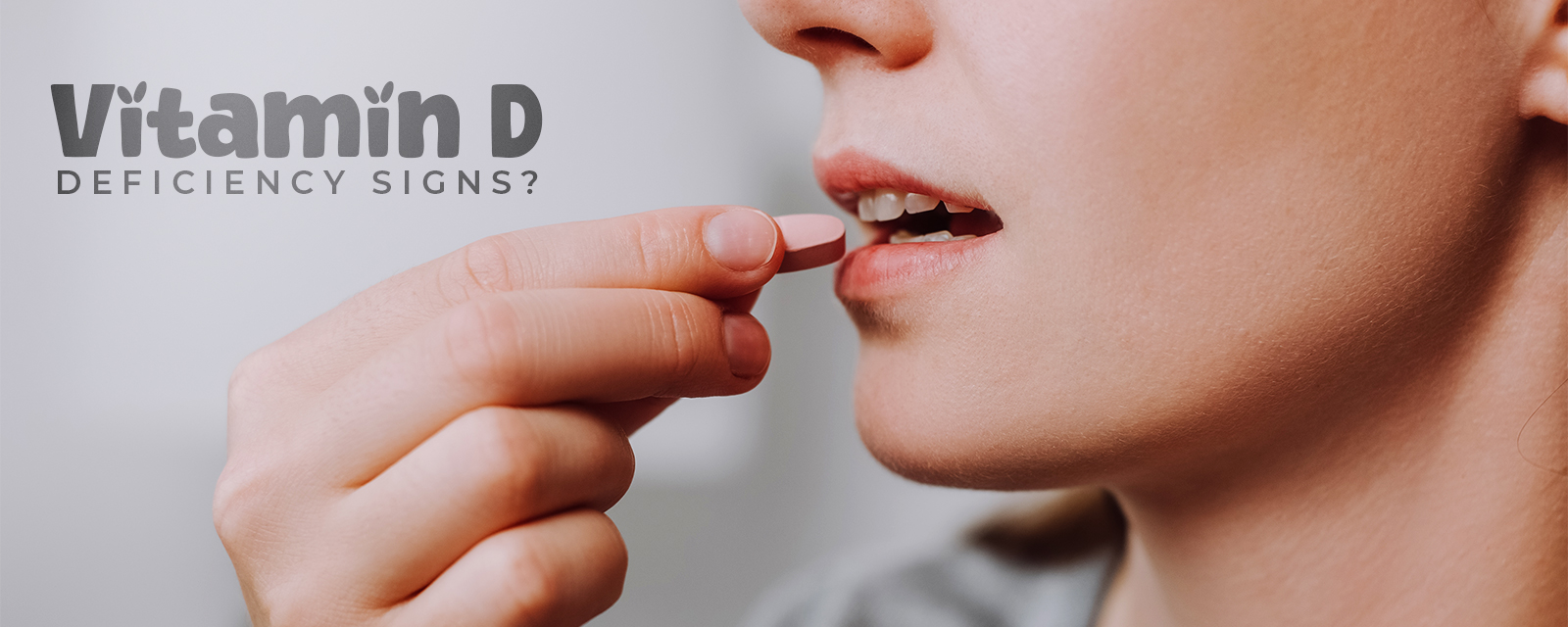
Do you randomly feel tired, moody, and your body starts aching for no reason at all in the middle of the day?
These symptoms often go unnoticed, but they could be warning signs of vitamin D deficiency - a surprisingly common health issue affecting about a billion people worldwide.
Inadequate sun exposure and dark complexion can negatively affect your vitamin D levels. Certain health problems affect absorption.
Vitamin D is crucial for strong bones and plays a major role in energy, muscle strength, and mood.
A simple blood test can tell you about vitamin D levels and certain health conditions.
If these symptoms sound familiar, it’s time to examine your vitamin D levels more closely - your body might be trying to tell you something important.
Why Do We Need Vitamin D?
Vitamin D, also known as the “sunshine vitamin,” helps your body absorb calcium, keeps your bones strong, influences your mood & sleep quality, and supports your overall immune system.
You may ask, “Why don’t humans get enough sunlight?” The answer is simple: sunlight doesn’t directly provide vitamin D, but stimulates the production in your body.
Many people worldwide aren’t getting enough vitamin D, and this negatively affects their bone health, immune health, and stress.
Why Is Vitamin D Deficiency So Common Today?

70-80% of the Indian population, ranging from children and adolescents to adults and the elderly, have severe Vitamin D deficiency.
Modern hustle culture, increased use of sunscreen, pollution, and dietary gaps have led to reduced sun exposure and Vitamin D deficiency.
This “sunshine vitamin” is essential for strong immunity, healthy bones, and overall health.
Raising awareness and simple lifestyle changes can help reverse this growing problem.
Read More: 6 Anti-Aging Foods That Make You Look Younger Naturally
Vitamin D Deficiency Signs?
There are several common signs of low vitamin D. Experts advise consulting your primary care doctor if you have any of these symptoms:
Vitamin D deficiency can give you severe fatigue, affecting your daily life, work, and relationships.
How much vitamin D do you need per day?
The National Institutes of Health recommends a dietary limit of 10 mcg (400 IU) for newborns under 12 months of age, 15 mcg (600 IU) for people aged 1 to 70, and 20 mcg (800 IU) for people aged 70 and above.
Vitamin D-fortified milk can provide you with 3 mcg of vitamin D, whereas UV-exposed mushrooms can provide anywhere from 400 to 2,000 IU of vitamin D2 per 100 grams, depending on the type and exposure.
Additionally, Vitamin D-fortified breakfast cereals can provide you with around 2.5 mcg.
It is difficult to get enough Vitamin D from diet alone, and it is essential to take supplements if recommended by health professionals.
What Prevents Your Body from Absorbing Vitamin D?
According to Yale Medicine, several medical conditions affect your vitamin D absorption:
Individuals who have undergone bariatric surgery or had parts of their small intestine removed are also at higher risk of vitamin D insufficiency.
The Bottom Line:
Vitamin D is essential for bone strength, energy, mood, and immunity.
Less sun exposure, poor diet, and certain conditions can lead to a Vitamin D deficiency.
If you experience unexplained fatigue, body aches, and low immunity, simple lifestyle changes, fortified foods, or supplements can help restore healthy levels.
If you notice symptoms, get your vitamin D checked - it’s a small step with big health benefits.
FAQs
What are the main symptoms of vitamin D deficiency?
Fatigue, muscle aches, bone pain, mood changes, and frequent infections are common symptoms.
How much vitamin D do I need daily?
Most adults need 600–800 IU of vitamin D daily, based on age and health.
Can I get enough vitamin D from food alone?
It's difficult to meet daily needs from food alone; fortified foods and supplements may be necessary.
What medical conditions affect vitamin D absorption?
Conditions like celiac disease, IBD, cystic fibrosis, and liver or kidney disorders can impair absorption.
How can I check my vitamin D levels?
A simple blood test measuring 25(OH)D can check your vitamin D status.
Explore more from Naturopedia:
Top 6 Best Natural Shampoos for Hair Growth in India (2025 Update)
10 Foods to Lower Your Blood Sugar
Top 5 Magnesium-Rich Fruits to Beat Summer Fatigue and Stay Energized